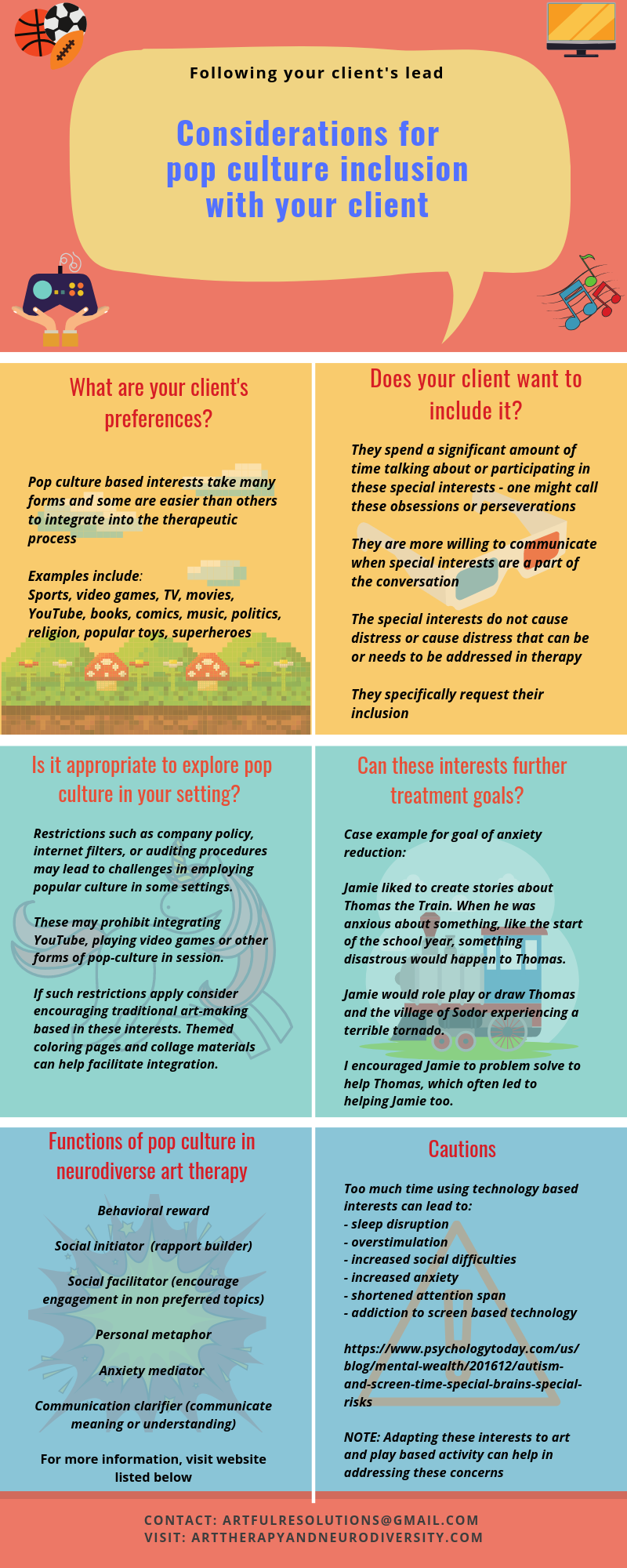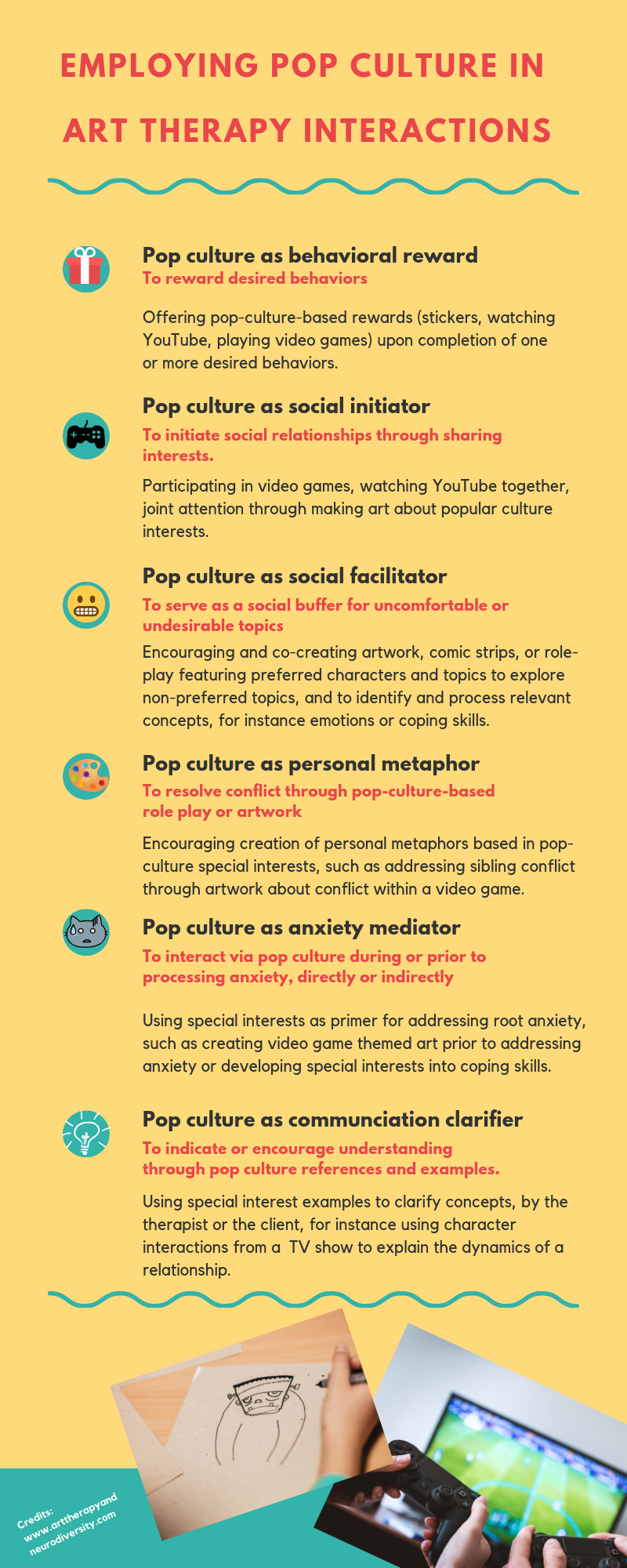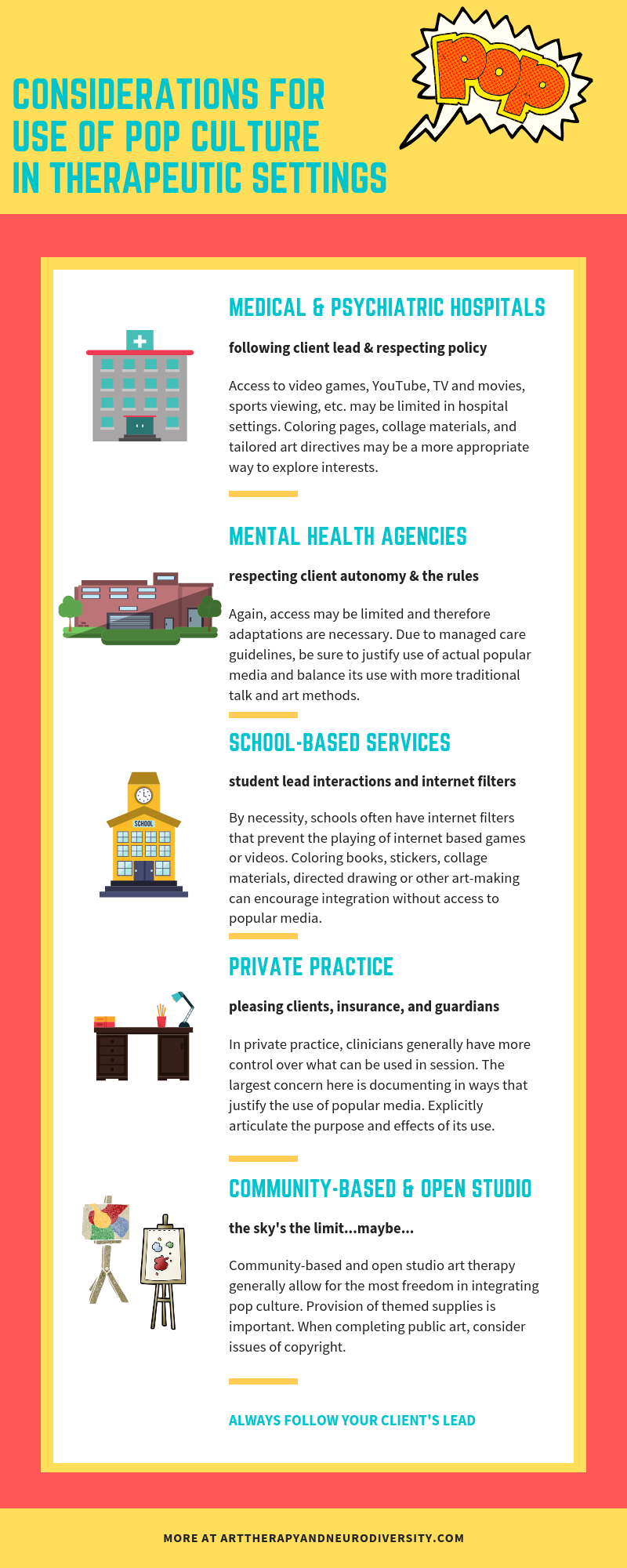“Those who work with autistics[sic] on a more empathic level realize that perseveration is not simply mindless repetition without significance. What is said, drawn, sung or written often holds the key to the child’s salient concerns. One only need to listen seriously and see in order to partake of their struggles” (Henley, 1989, p. 53).
I have developed the following practice framework and associated examples based on sixteen years of experience working with individuals with autism spectrum disorders and my doctoral dissertation research. This page includes infographics and video illustrating why and how art therapists who work with individuals with ASDs should integrate clients popular culture-based interests in their practice.
Why encourage inclusion of restricted repetitive interests, especially those based in popular culture, in therapeutic interactions?
- Acknowledging client interests is paramount
- Rejection of techno-digital and popular culture may impede relationship development with clients with Autism Spectrum Disorders
- Popular culture special interests can facilitate interaction between client and therapist and encourage greater depth in interactions
Case vignettes illustrating the role of popular culture in my art therapy practice
Follow this link to read case vignettes I developed based on my clinical experience. [Note most of the stories ahead are case composites- based on years of working with kids, teens, and young adults with ASD. None represent a single person, but rather the characteristics I often observed. Those that are direct case studies are used only with informed consent and explicit permission]
What role can perseverative popular culture interests play in building the therapeutic relationship and furthering therapy goals in Art Therapy? (as illustrated in infographics)
This video illustrates the concepts articulated in the above infographics
What if my setting doesn't allow playing video games? How do I justify the inclusion of popular culture materials (as illustrated in infographics)?
Note: Accessibility is an important component of this site, the site is not yet fully accessible but it is a priority. If you have difficulty accessing any of the material you would like email [email protected]
Proudly powered by Weebly



